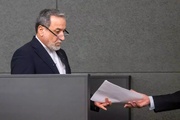According to Anibal Perez-Linan, professor of political science and global affairs at the University of Notre Dame, Milei’s victory shows the voter’s skepticism toward politicians as well as their desperate search for new choices, Sputnik reported.
Ignacio Arana Araya, assistant professor at the Institute for Politics and Strategy at Carnegie Mellon University, also believes Argentina will probably have a second round due to the country’s balance of power among political blocs.
"The most likely scenario is a runoff election in November because the country is divided into three coalitions that enjoy similar levels of support. Milei could win in the runoff elections, but that is still highly uncertain," Arana Araya explained.
Meanwhile, Juan Javier Negri Malbran, a professor at the Department of political sciences and international studies at Universidad Torcuato Di Tella in Buenos Aires, pointed to several issues that could potentially cost Milei the presidency.
However, even if Milei manages to find himself in the presidential seat, the question remains whether he'll be able to implement his proposals - which include abolishing the country’s central bank and adopting the US dollar as the national currency since he lacks institutional support.
If his party repeats the primary’s success in the general election, it stands to have about 40 seats in the 257-seat lower house and eight seats in the 72-seat upper house.
Argentina's presidential election is scheduled for October 22. The main contenders for the presidency are Economy Minister Sergio Massa running for the ruling Union for the Homeland party, and opposition politicians, including former security minister Patricia Bullrich, Buenos Aires mayor Horacio Larreta and Milei.
AMK/PR


























Your Comment